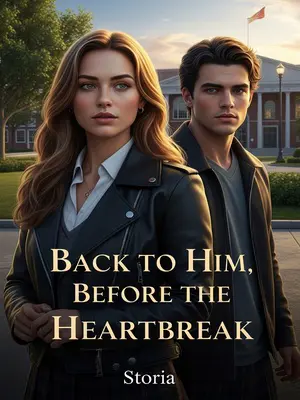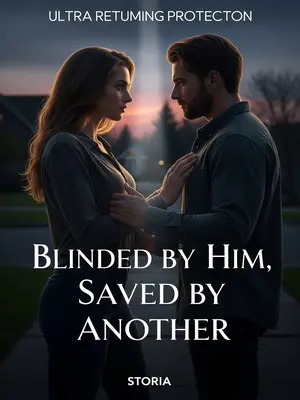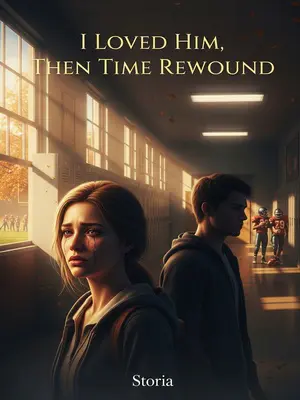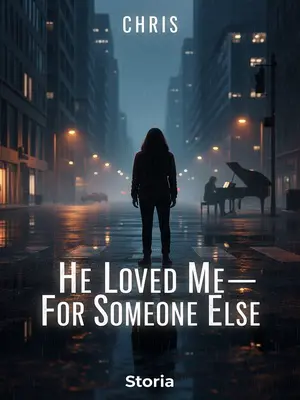Chapter 2: Déjà Vu in Marble Halls
They handed out envelopes and handshakes like party favors. I watched from the shadows, invisible, while fortunes changed in a single afternoon. It was the kind of scene you’d see in a movie, not real life.
I didn’t argue. Nanny Ruth wanted me to wait outside.
Her hands were gentle. Her eyes, worried. She pressed her hand to my shoulder, gentle but firm. “You just sit tight, honey. Don’t get any ideas.” Her eyes darted to the closed doors, worry etched deep in the lines of her face.
She said it again. And again. She kept repeating herself, like she had a hundred times before.
Her voice was a low murmur, half-reassurance, half-warning. Remember your manners. The words tumbled out of her, over and over, as if she could shield me with them. “Keep your head down. Don’t ask for too much. Just a little money, that’s all.”
Money was simple. Safe. "When the time comes, just ask for a little money."
She squeezed my hand, as if she could will me into making the safe choice. It was the smart move. I knew that. Her hands wrung the hem of her apron. “Don’t get greedy. You’re a good girl, Lila. Don’t forget that.”
"Sarah Langley—the judge’s daughter—grew up with Gabriel, they’re childhood friends, and her family is old money. You need to know your place." The words stung. But she was right.
Still, it hurt. Her words stung, but I knew she meant well. Sarah’s family had roots in Maple Heights that went back generations. People like me didn’t stand a chance against that kind of legacy.
I agreed to everything.
Inside, I drifted. Lost in memories. What-ifs. I nodded, swallowing the lump in my throat. I’d learned to say yes, to keep my dreams tucked away where no one could see them. It was easier that way.
Seven days since entering the estate.
The days blurred. Heavy with expectation. A week felt like a lifetime. The days blurred together—early mornings, long afternoons, the soft hush of servants moving through the halls. I kept to myself, afraid to draw attention.
Cozy, but plain. Faded wallpaper. One window, looking out at the garden. I’d been living in a small guest room all this time.
I kept my suitcase by the door. Just in case. The room was cozy enough, with a window overlooking the gardens and a patchwork quilt on the bed. But it wasn’t home. It never would be.
Her fussing was a comfort. This housekeeper, Nanny Ruth, treated me well, just a bit fussy.
It was the little things. She brought me extra blankets, made sure I ate breakfast. She reminded me to keep my shoes by the door and not to wander after dark. Her fussing was a comfort, even if I pretended to be annoyed.
I never mentioned it to her.
Some aches never go away. Some secrets are too heavy to share, even with someone kind. I kept the truth locked away, afraid of what might happen if it ever slipped out.
Back then, I saved Gabriel from a pile of bodies after a terrible accident. The flames were everywhere, licking at the rafters, turning everything to ash. I found him half-buried, barely breathing. My hands shook as I dragged him free, praying he’d survive. It felt like a lifetime ago.
It was the kind of thing you see on the news and never expect to live through yourself. His hand gripped mine like a lifeline. Until the old family lawyers found him and brought him back to Maple Heights.
They came in shiny black cars. All business. All urgency. I watched from the porch as they hustled him away, promising he’d be safe. I didn’t know if I’d ever see him again. They promised to send word. They never did.
For those two years, he lived in our quiet fishing town. He became part of the rhythm of the place.
He became part of the rhythm of the place—early mornings on the dock, evenings by the fire. People didn’t ask questions. Maybe they knew he needed peace. It was quiet there—just the wind in the pines and the cry of loons at dusk. We kept to ourselves, far from the world of the Whitmores and their endless drama.
I helped him patch up his wounds, nursed him back to health. I learned more about first aid than I ever wanted to know. He was stubborn, refusing help at first. But I saw the pain in his eyes, the way he winced when he moved. I learned to be gentle, to patch him up without asking too many questions.
I learned more about first aid than I ever wanted to know. Sometimes I’d hum old lullabies as I cleaned his cuts, trying to soothe us both.
We made a good team. Quiet, but good. He helped me catch fish, chop wood, repair the leaky roof of my tiny cabin.
We made a good team, in our own quiet way. His city hands, soft and uncalloused, grew rougher as the months passed. He’d laugh when I tangled the fishing line, or tease me when I missed a nail with the hammer. I started to believe we could make it work, just the two of us.
The house always felt too big. Too quiet. My parents died young; I’d been alone since I was a teen.
Independence was a habit I wore like armor. The ache of their absence never really faded. Some nights, I’d sit by the fire and talk to them, hoping they could hear me. Meeting Gabriel felt like a second chance, a reason to hope again.
Hope crept in. Soft. Dangerous. After meeting Gabriel, I thought my life would finally change.
Hope crept in, soft and dangerous. It was a fragile dream. He brought light into the shadows. I started to dream of a future—one with laughter, warmth, and someone to share it with. It felt possible, for the first time in years.
He’d spend hours reading by the window. Glasses slipping down his nose. He was gentle with me, with a quiet, thoughtful air.
He’d spend hours reading by the window, glasses slipping down his nose, filling the house with words that made everything seem possible. He’d listen more than he spoke, eyes soft, hands steady. When he did speak, it was with a careful kindness that made me feel seen.
His handwriting was neat. A little old-fashioned. Standing in front of the kitchen table, he took my hand and wrote out a line from an old poem: "Hope is the thing with feathers that perches in the soul."
I traced the letters. Felt the weight of each word. His penmanship was careful, each letter deliberate. He smiled as he guided my hand, his touch warm and reassuring. I kept that scrap of paper tucked in my Bible for years.
We’d laugh when I stumbled. He taught me to read, bit by bit.













